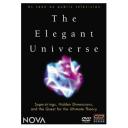A Brief History of Time
 The movie about Stephen Hawking’s ideas from his book titled the same and abut his life. A Brief History of Time attempts to explain a range of subjects in cosmology, including the Big Bang, black holes, light cones and super-string theory, to the nonspecialist reader. Its main goal is to give an overview of the subject but, unusual for a popular science book, it also attempts to explain some complex mathematics.
The movie about Stephen Hawking’s ideas from his book titled the same and abut his life. A Brief History of Time attempts to explain a range of subjects in cosmology, including the Big Bang, black holes, light cones and super-string theory, to the nonspecialist reader. Its main goal is to give an overview of the subject but, unusual for a popular science book, it also attempts to explain some complex mathematics.
The author notes that an editor warned him that for every equation in the book the readership would be halved, hence it includes only a single equation: E = mc². In addition to Hawking’s abstinence from equations, the book also simplifies matters by means of illustrations throughout the text, depicting complex models and diagrams. The book is considered by many to be an “unread bestseller”, which is a book many people own but few have finished.
I really do like the idea to address such an exciting subject to non mathematicians. The choice of topics is well balanced and gives you an interesting introduction into the modern view of our universe. In particular the introduction of sometimes contradictory models explain how physics works the evolution of ideas.




i like this i want thiss for my project thnx uploader.......
Of course, silly religious ramblings of barbarians who follow the death cult of Yahweh have to make their way onto the pages of some great science documentaries.
Get on your knees and face ( the best place for you ), while the rest of the world continues to discover every day.
... barbarians.
Yes, because no discoveries have ever been made by Christians. Well, I mean other than heliocentric solar system models, or the big bang theory, genetics, gravity. You know, other than these things, no discoveries by Christians.
i see these things you mention as discoveries DESPITE christianity. all of these were discovered by men as well, but i don't see you defending the penis with your incredibly illogical sarcasm.
Very interesting stuff. The audio quality is terrible though. You can understand stephen's pc, but not any of the other speakers.
Ness:
"Would it not be a bit more cheerful at least to have a little faith that the One who began the whole universe with just His voice in the first place shall one day know how to rejuvinate it?"
Undoubtedly but remember scientists are interested in what is true NOT what beliefs make us cheery. They start with evidence and so far there is no evidence that any such Gods exist despite many claims for many different beings throughout history.
Who says that it is not just because we lack the technology to understand it. We have no idea what Dark energy really is, or dark matter for that point. Existence of God may one day be provable. There was once no proof of black holes, other galaxies, or any of quantum mechanics.
Provable by whom? Science and scientists are not concerned about proving whether any deities exist or not, much better things to do, then wasting valuable time and resources to try to prove or disprove your non-existence gods.
A creator may or may not exist.
The likeliness of the creator being one of the thousands of Gods that humans have worshipped over the ages is unlikely... nor is the likelihood of that creator having any interest in us whatsoever.
Basically Im agnostic towards the Deist God but atheist when it comes to the God of the Abrahamic religions.
Hawkings probably doesnt consciously dance around the subject of God (or maybe he does so that religious people dont misquote or misunderstand him the way they did with Einstein).
However Im guessing he thinks its not important.
I LIK SCIESE!! YAY
"but since science proves that they are illusions"
What/where is the proof?
Ness:
Yes, since we live in a static, (which means a fixed or stationary),
Multiverse. Space and Time are illusions, according to scientific principles. Each of our now's, are like a succession of snapshots, that we chose with our free will to form probabilities, to make our reality.
According to Quantum Mechanics, nothing at the subatomic scale can really be said to exist until it is observed.
Until then, particles occupy uncertain "superposition" states, in which they can have simultaneous "up" and "down" spins, or appear to be in different places at the same time. The mere act of observing somehow appears to "nail down" a particular state of reality.
Because our concept of time means every thing has to be moving in linear fashion, it is very difficult to fathom that time and space are illusions. but since science proves that they are illusions, everything is static,and eternal.
When you say "everything is eternal" do you mean the universe as a whole is eternal, or litterally everything, person, etc. is eternal? I believe we have an eternal soul, but everything else being eternal is hard to understand. Anyway, when I'm doing the dishes, washing the laundry, watching the kids, and making dinner . . . yes, it all seems a bit eternal!
Ness:
A lot of theory's abound!
One theory is we live in a "static" Universe. Where everything that happened or is going to happen already happened! There is no past , present, or future. It is as if we are looking at snapshots from a picture album. Time seems to run in a linear fashion because we make it so. Looking at one snapshot to the other, giving motion, so to speak.
Everything is eternal, we only live in the now. We were alive say 10 minutes ago but only in that now. And we will be alive say 10 minutes later but again, only in that now. It all boils down to "I think therefore I think I am". Science or no Science, The God's are us.
Ultimately, this documentary postulates the theory that there must have been a beginning of time (and the universe), but then suggests that perhaps that the universe is indeed eternal in origin without a point of creation in some oval shapped model he showed, as opposed to the classic point model where the laws of time and modern science breakdown a the dawn of time.
Nonetheless, no matter how the universe began, the universe as a whole has a point of death where all life will cease. Even "gravitationally collapsed entities (black holes) have a "death" and release thier energy in explotions eventually, and in fact even release some amounts of radiation even now. The ultimate end of the universe will come when the expanding universe which started with some form of explosive outward force which we call the "Big Bang" reaches it's climax, stops, and then starts the shinking and collapsing state which will culminate in the "Big Cruch," essentially the opposite of the "Big Bang."
Conclution: time is non-reversable even when the collapsing of the universe begins, but time had to have a begining which is known as the "Big Bang." "This does not preclude the existence of a Creator, but limits WHEN He did create the universe to a certain point," Steven Hawkings (roughly quoted from the documentary by memory).
Personal Note: While this documentary is extraordinarily well thought out by Mr. Hawkings, and he mentions God roundaboutly throughout the whole documentary, he never fully embrasses the possibility that the great Creator of the universe was, or is, or ever will be truly the force behind all that is.
The "death of the universe" seems much less ominous when you consider that the Bible says that the Heavens will grow old like a garment, and God Himself will roll them up as a scroll. For lack of time I don't want to find the actual Scripture reference, but that's the general thought.
Likewise, God will create a new Heavens and a new Earth and time shall be no more. Hawkings, in his brilliance excludes such as a possibility (as it is never mentioned). How gloomy to think all that is and all that ever was and all that ever will be shall end in a "Big Crunch"! Would it not be a bit more cheerful at least to have a little faith that the One who began the whole universe with just His voice in the first place shall one day know how to rejuvinate it? Truly He is amazing, and what a wonderous universe He has created and we've yet just begun to understand it. What an exciting age we live in!